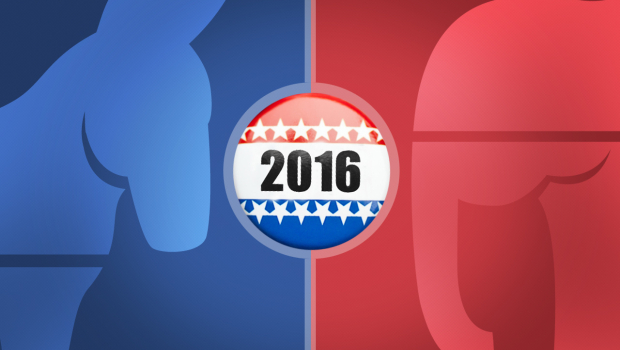
Thomas Garvie
tgarvie@uwyo.edu
With the 2016 presidential election in full swing, one question sits atop all others- how the hell is Donald Trump still the frontrunner for the GOP nomination?
Trump entered a muddled GOP field that is desperate to take back the White House after 8 years of democrat control. Trump took the official lead after the first GOP debate, taking advantage of his charisma, flamboyance and love for all things hyperbolic. However, it is that love for hyperbole that concerns me as well as many others. For example, one of the cornerstones of his platform is immigration, where his master plan is to simply build a wall that spans the length of the U.S.- Mexican border. This promise accomplishes a couple of things. The first is to capitalize on both a fear and a resentment that many conservatives harbor for illegal immigrants. I think it is important to distinguish between legal and illegal immigrants, however, when it comes to Mexicans of either variety, the narrative remains the same. This narrative is the product of a combination of negative stereotypes and nationalist predispositions. It is important to remember that while these stereotypes serve no purpose, the fear of the economic effect of a growing illegal population is warranted.
Despite being a divisive, disrespectful, unapologetic, offensive and seemingly incapable of humility, Donald Trump still leads the race for the Republican Party nomination. The fact of the matter is that this litany of characteristics that make him appear to many as less than presidential, might actually be what is boosting his numbers.
In a survey of Donald Trump supporters, two of the most common phrases used to describe the presidential hopeful were, ‘aggressive,’ and ‘authentic.’ These are two words with positive connotations describing the same characteristics listed above. What creates this positive perspective for voters? The answer is simply that Trump is everything a career politician is not. Politicians are often considered to be both passive and dishonest. Americans have for too long been made promises by attractive men in nice suits with pearly white teeth and that go lucky smile that you just can’t teach, only to have a majority of those promises go unfulfilled. President Obama was the epitome of this as he championed healthcare reform during his campaign. When introducing the Affordable Care Act (ACA/Obamacare), he often said that if you want to keep your current doctor you could do so under the new system. However, upon its roll out it became clear that this was untrue and the president’s lack of candor came to the center of the public eye.
While President Obama is certainly not the first to fail to follow through on a campaign promise, this example is important as it both illustrates the problem as well as sets the stage for this campaign. With years of failed promises from politician upon politician, the American people reacted as we often do- reaching to the opposite extreme to compensate.
Trump is a candidate with no political background and no experience as a civil servant. He has aggressive and rudimentary plans both in immigration and foreign policy that seem to stem from little experience with either.
A quick aside before Laramie’s Trump supporters have a meltdown; I am fully aware Trump has done business overseas however representing a private business is a far cry from representing a nation.
Trump is able to continue his success despite these deficiencies because he is perceived as being two things career politicians are not perceived to be- decisive and genuine. It is this same quality that has allowed neurosurgeon Ben Carson to rise to second place behind Trump despite a startling lack of personality and even less foreign policy experience than Trump. Carson benefits more from what I am calling the “regular Joe” effect. This is the idea that, because he is neither a politician nor a billionaire, the average working voter can more easily identify with him.
This is a concept that extends across the aisle as well.
Bernie Sanders, a close second behind Hillary Clinton for the democratic nomination is seeing a boost in numbers for a similar reason. However, there are some questions that lead one to wonder about his growing support as well. The first is the legitimacy of a candidate that refuses to stray from socialistic economic ideas even in a capitalist country. There is plenty to be said for the shortcomings of capitalism, however one cannot solve these problems by implementing socialistic institutions in a capitalist society. For example, the idea of free college is just as romantic to young Democrats as a giant wall is to older Republicans, and almost as ridiculous. In a capitalist society free college would only exacerbate economic strife as it would devalue the market worth of each degree by saturating the market with people bearing the same qualifications, as well as devaluing the inherent value of the degree as paying the best and brightest in their fields to be educators would no longer be possible.
However despite these unreasonable promises, he garners the romanticism of being anti establishment. By suggesting that college should be free and that in America one is not bound to the restraints of the market or capitalism, Sanders positions himself as a trailblazer and freethinker in direct contrast to establishment politicians.
When we feel we have been taken advantage of, it is natural for us to reach for the other extreme. However, in this case that can be quite dangerous. When the extreme aversion to career politicians subsides and reason is restored, expect to see these candidates (Trump especially) fall in the polls.
The secret to Trump’s political success



